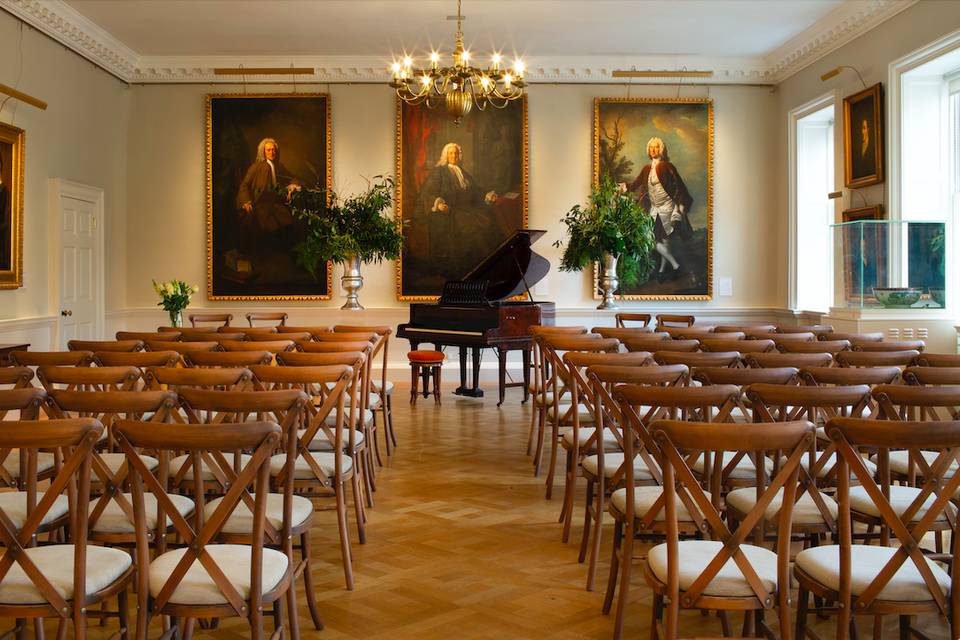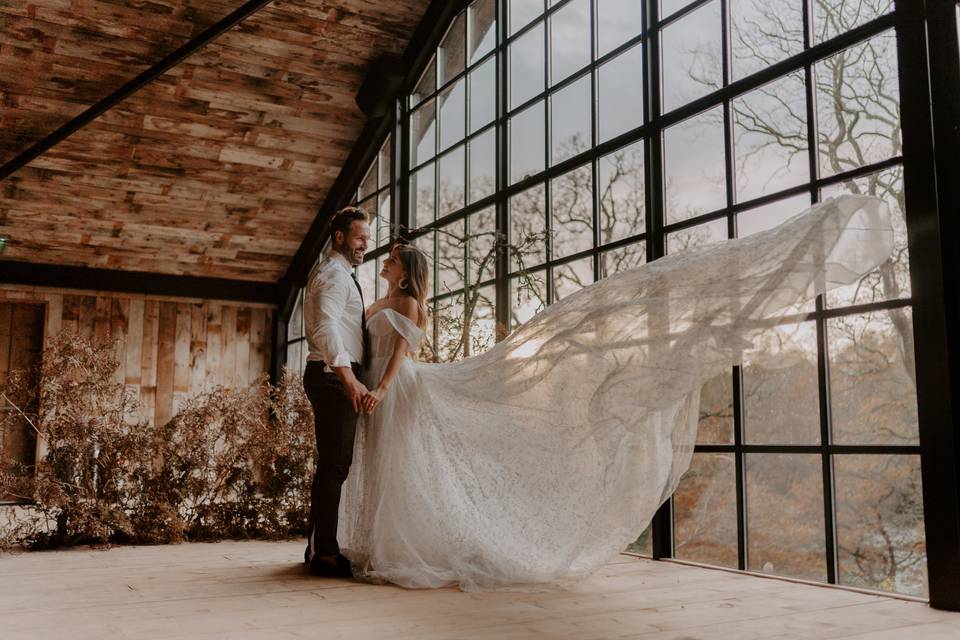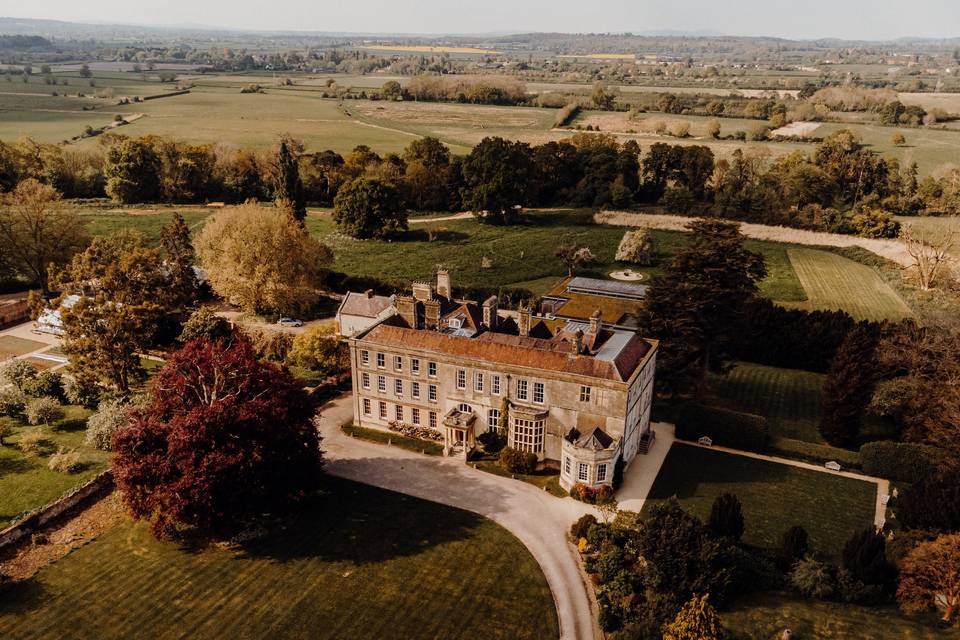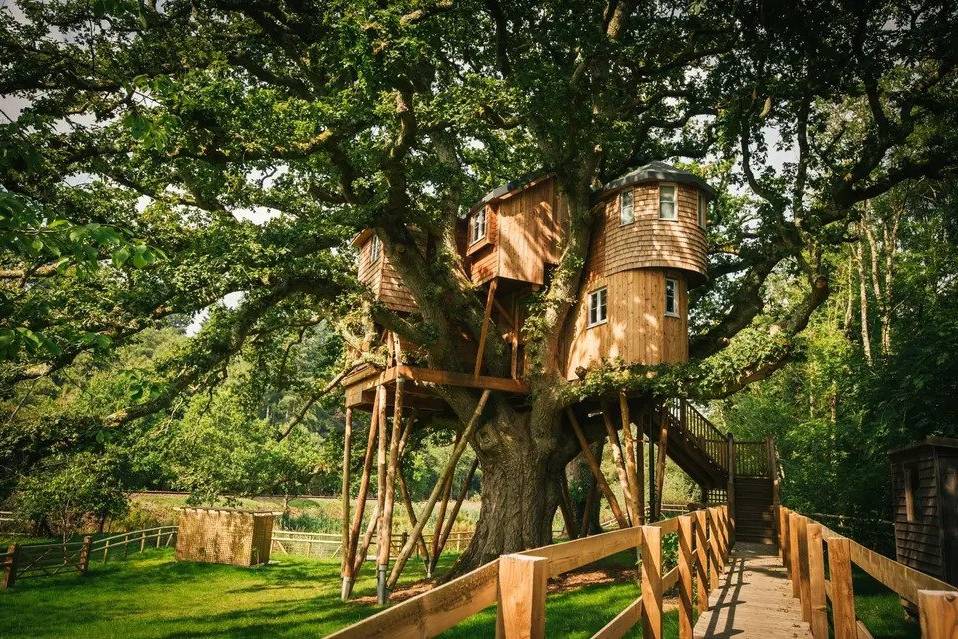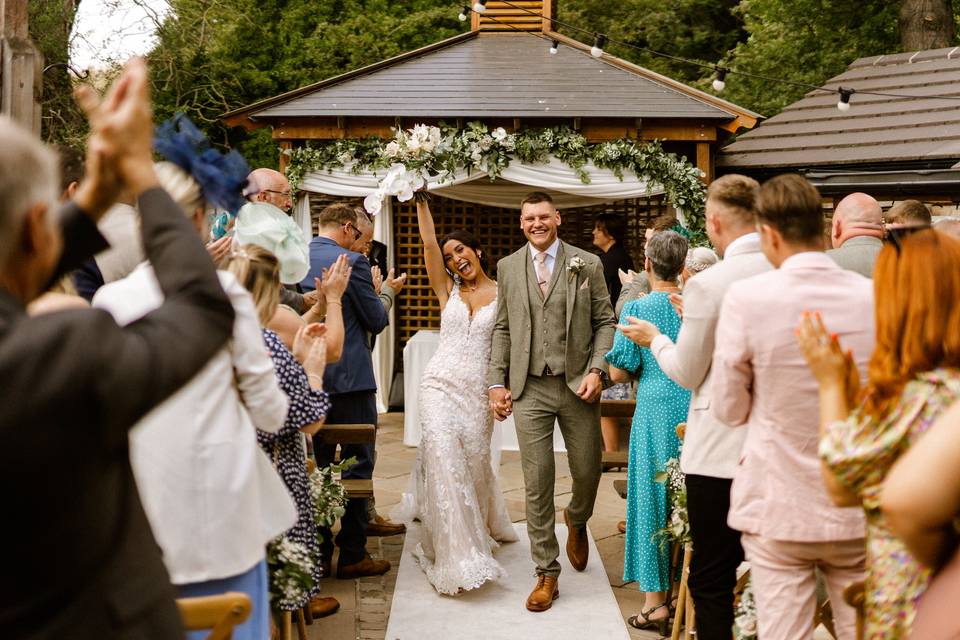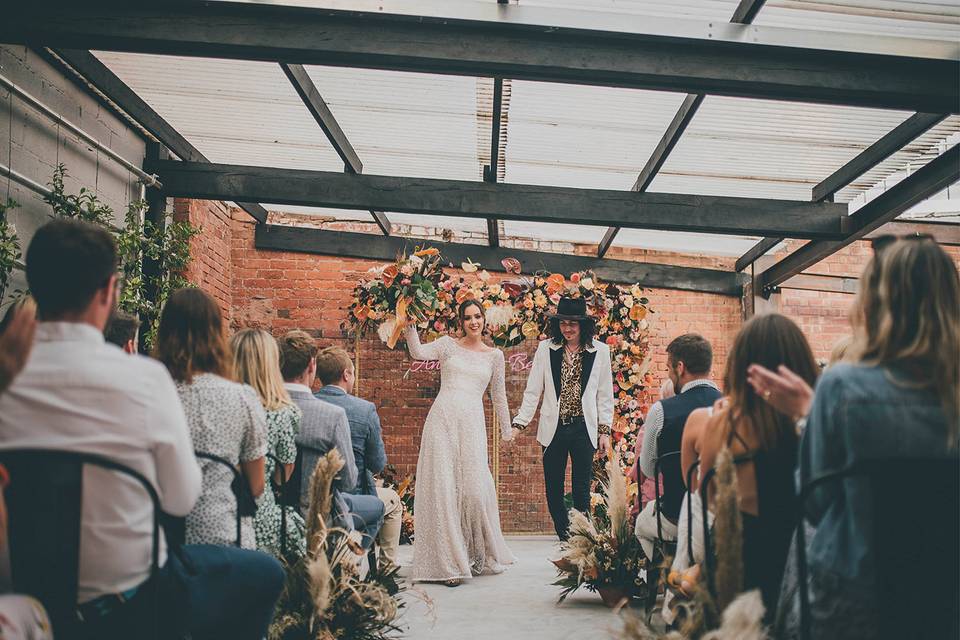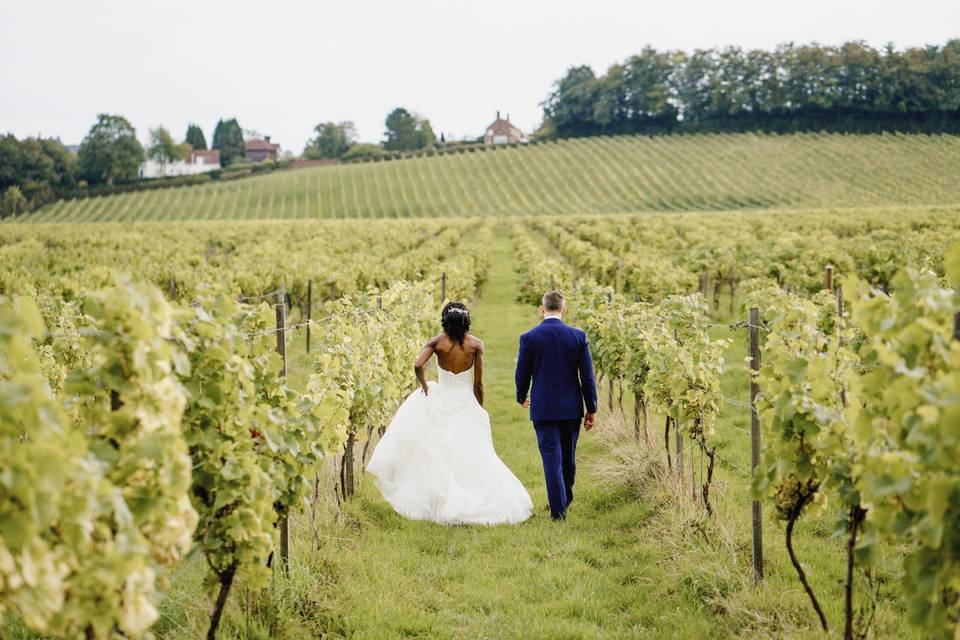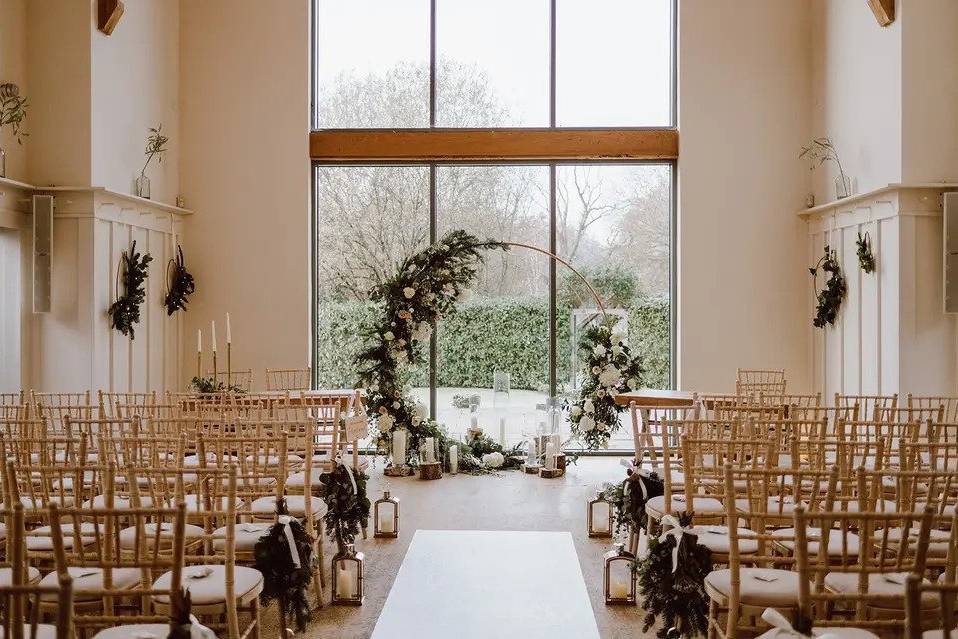What to Expect at a Buddhist Wedding: Traditions & Etiquette Explained
Been invited to a Buddhist wedding? Here’s everything you need to know before you go, including some key wardrobe dos and don’ts…
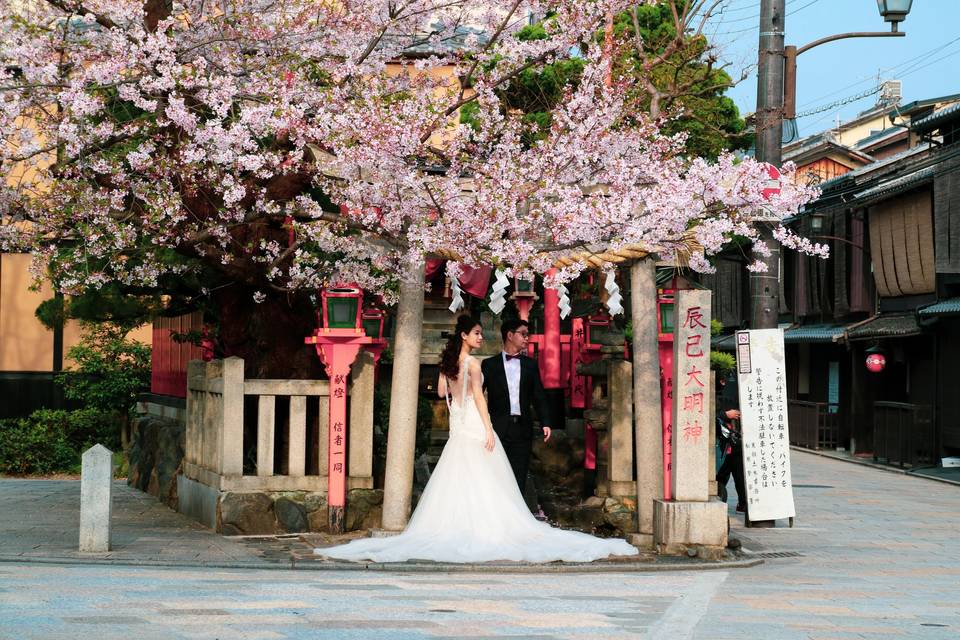
Whether you’ve been invited to the wedding of a Buddhist couple or are attending a wedding in a predominantly Buddhist country, the first thing to know is that there is no sacrament of marriage within Buddhist faith, unlike in other religions. A harmonious partnership can help a couple to adhere to the The Five Precepts – the guidelines that Buddhists follow to lead a morally good life – and help Buddhists to support one another on the path to enlightenment, but marriage is considered to be a social arrangement.
As such there is no set ceremony order, readings or official ordainment by a religious leader. While Buddhist wedding traditions often reflect a couple’s spiritual beliefs, a Buddhist wedding will also be heavily influenced by local culture and customs as well as family heritage and individual preferences. In short, almost anything goes, although there are some key elements of a Buddhist wedding to be aware of, particularly if you’re attending a Buddhist temple at any time during the celebrations. Here’s what to expect at a Buddhist wedding – don’t pack your bags before reading (we’ve got handy wardrobe tips aplenty).
READ MORE:
- What to Expect at a Chinese Wedding
- What to Expect at a Jewish Wedding
- What to Expect at an Indian Wedding
Where is a Buddhist Wedding Held?
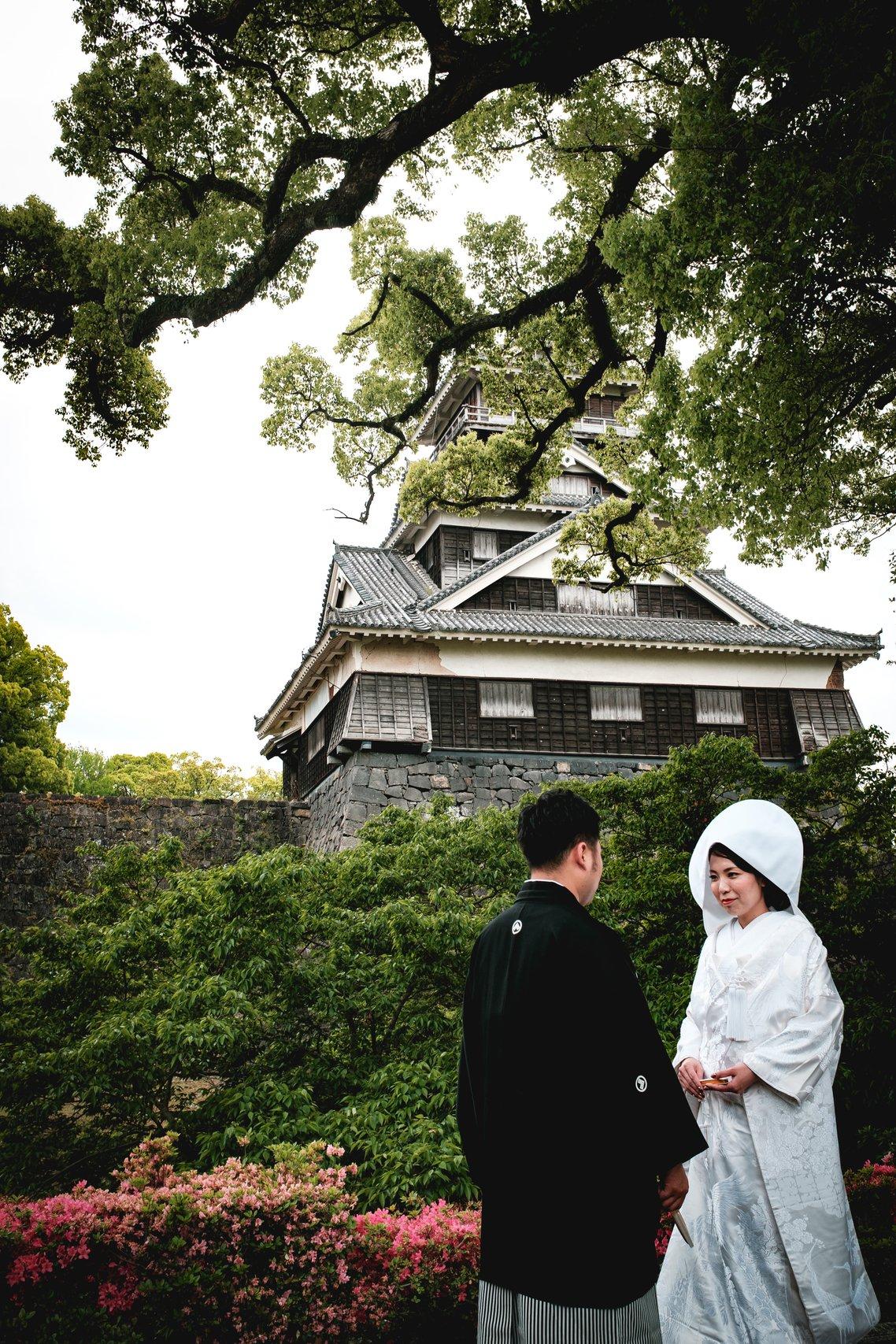
As a Buddhist wedding isn’t a religious occasion, weddings generally don’t take place in a temple, except in Japan where couples can get married in a Shinto shrine or a Zen temple should they wish to. A couple is free to choose where they get married according to the law in their country. It’s common for Buddhist couples to get married in registry offices or other licenced wedding venues in England and Wales, whereas in Scotland and other countries it’s possible to get legally married on a beach, in a meadow, on a mountain – within reason, anywhere that the couple chooses.
READ MORE: The Rules on Outdoor Civil Weddings & Partnerships
In India and Asia Buddhist wedding ceremonies might be held at home, in large hotels or on beautifully decorated pavilions. Buddhist couples can be married by a celebrant, a friend or a family member – an elder family figure who is close to the couple is a popular choice, or couples can even conduct the wedding ceremony themselves. The invite and wedding programme will give you the best idea of what’s in store, as Buddhist wedding proceedings are very personal and flexible.
What Happens at a Buddhist Wedding?
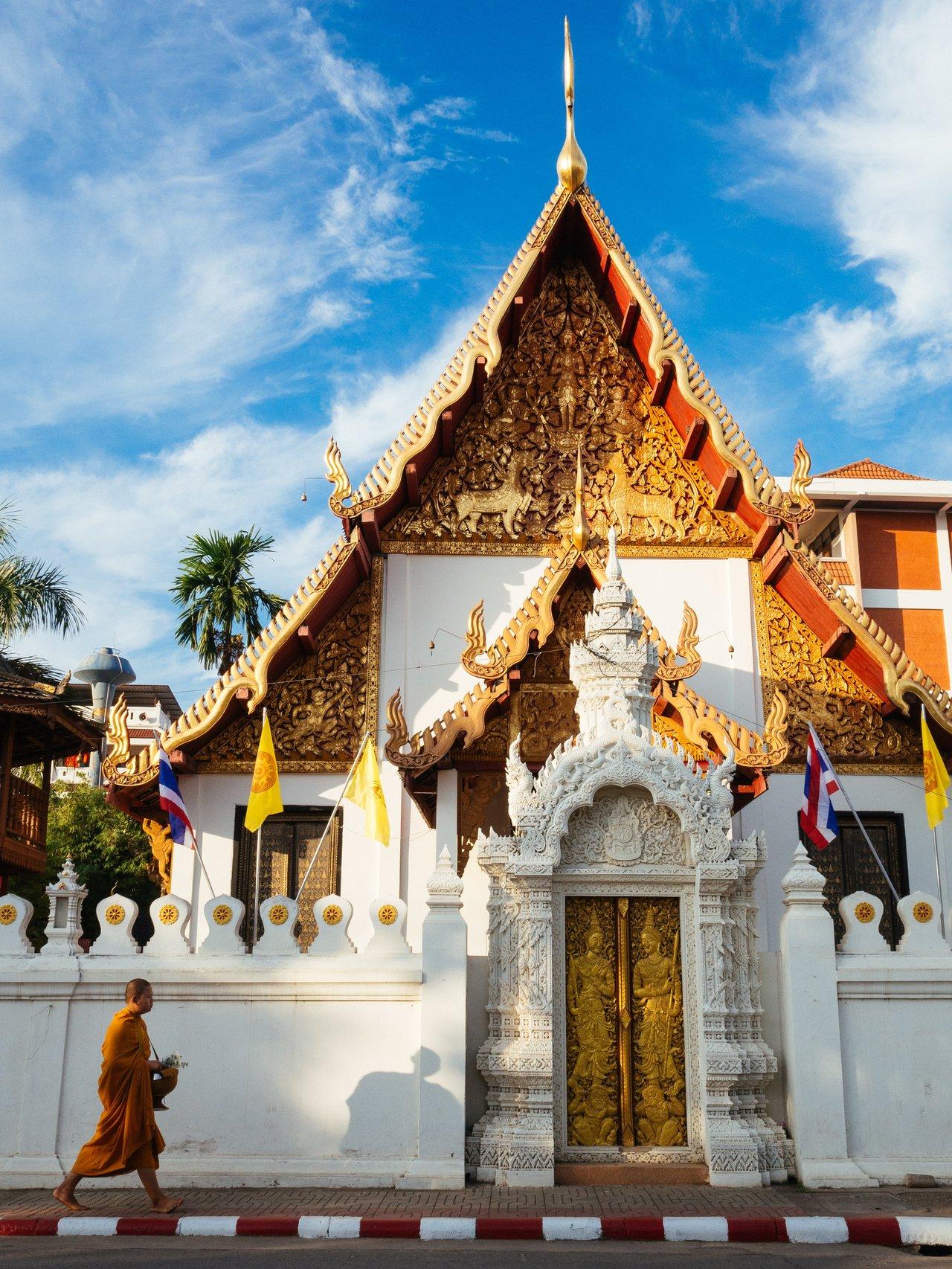
This will greatly depend on where the wedding is taking place, but Buddhist couples often visit a temple before the marriage or early on their wedding morning to ‘make merit’. This could involve taking gifts of flowers, money and/or food to the temple for the monks, who will then bless the couple.
Pin-Anong Rattanasasikan, wedding planner at Rayavadee, a hotel in the south of Thailand that frequently hosts Buddhist nuptials, explains that “the traditional blessing ceremony by Thai Buddhist monks is performed before 10am, as the monks need to finish eating their daily meals before 12 noon”. This reflects Buddha’s period of fasting prior to enlightenment and gives monks time and space for meditation. “Thai monks collect food alms in the morning – so they eat what they are given into their bowl. We can help couples to prepare food offerings to give to the monks in advance before their marriage blessing”.
Buddhist monks frequently bless the marriage by chanting prayers or readings relating to peaceful companionship and love, lighting incense and leading the couple in guided meditation. Monks in Southeast Asia in particular may tie a white or red thread around the groom’s wrist for good luck, with the groom or another guest or family member then tying a thread around the bride’s wrist, as Buddhist monks are forbidden from touching women. My husband is Buddhist (his family is Thai Chinese) and this is something that we did before we got married. Sometimes the couple’s wrists are bound together or the thread can be tied around their heads and linked.
Buddhist couples will also place offerings of flowers, food and drink in front of a statue of Buddha either at home or in a temple (or both). The couple and their families typically light candles and incense sticks to honour their ancestors and pray for a long life and happy marriage. These rituals can take place after the wedding too.
Other Buddist wedding traditions are reflective of family or cultural practices.
Pre-Wedding Traditions
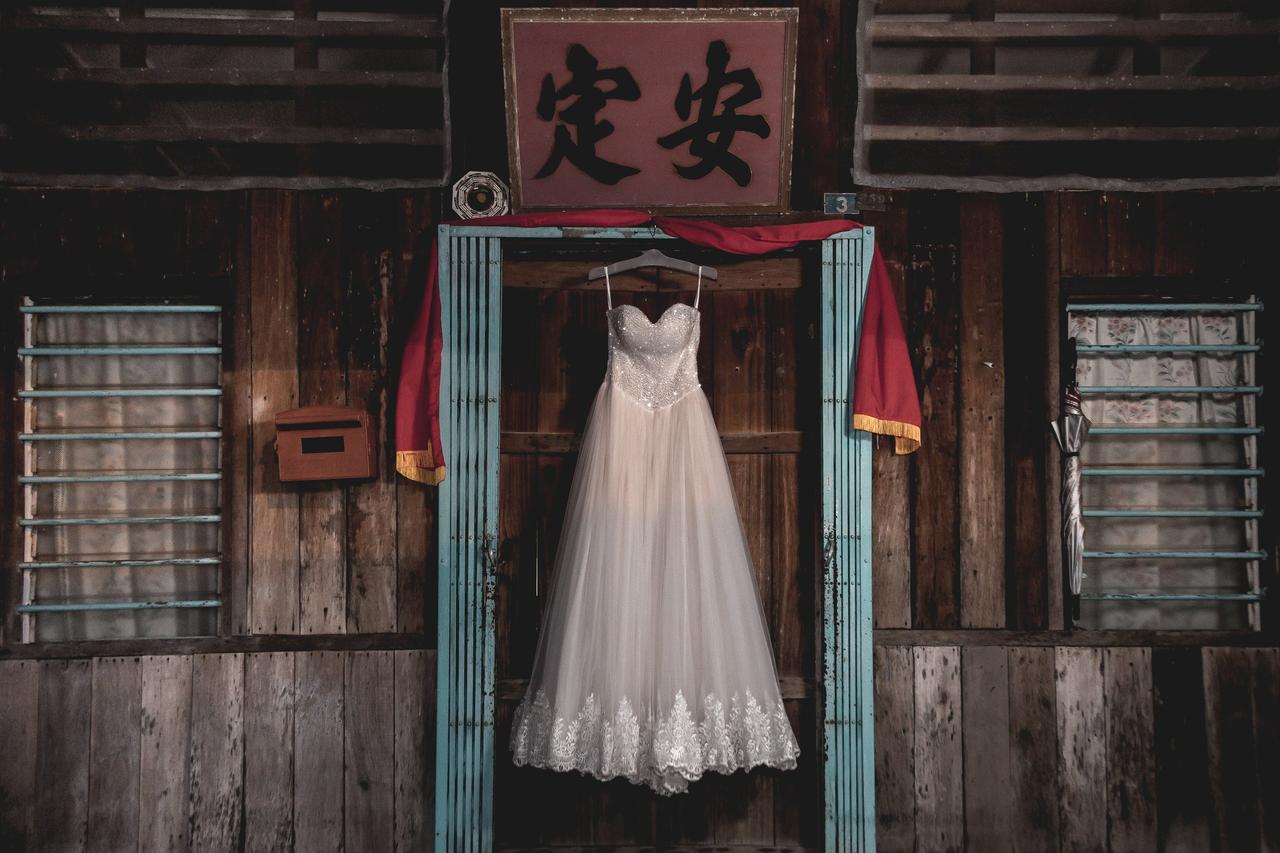
Some Buddhists consult their horoscopes to identify an auspicious day to get married and this can also be the case for planning engagements. While it’s not a tenet of Buddhism, it’s common among Buddhist communities in Asia and India and many couples visit a temple to submit their birthdays so that the monks can divine the ideal wedding dates.
Other traditions can include a pre-wedding feast with both of the couple’s family (typically held at the bride’s house), whereby the groom brings gifts and the families decide on everything from the dishes to be served to the best colour themes for the wedding. Pin-Anong notes that “traditional wedding decorations are very luxurious” – expect lots of colour and gold touches, whether you’re attending a Buddhist wedding in India, Sri Lanka, Southeast Asia or elsewhere.
READ MORE: Wedding Colour Schemes – 15 Beautiful Palettes for Every Season
Wedding Day Traditions
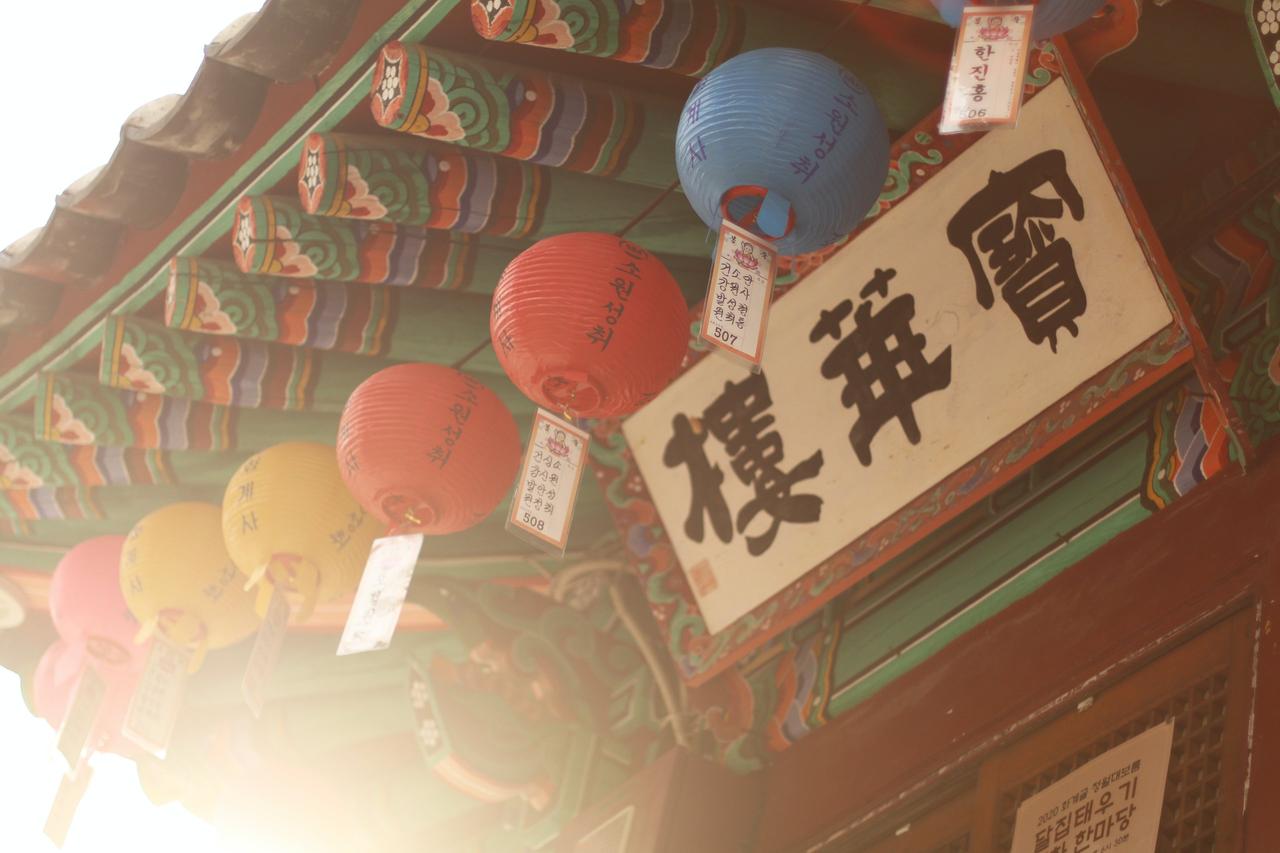
In addition to an early morning temple visit and meditation and prayer in front of a statue of Buddha, couples may incorporate elements of a traditional Chinese wedding if they have Chinese heritage. It’s also customary for the mother of the groom to give the bride a pair of earrings or precious jewellery.
In Japan, a couple may honour ancient tradition by sipping from a cup of rice wine or sake three times before or during the wedding ceremony, offering the drink to their parents and elders as a mark of respect and to symbolise the union of the two families. In India and Sri Lanka meanwhile, the couple’s foreheads may be painted with a fragrant red paste (called tilaka) as a mark of honour. This tradition is more often practiced at Hindu weddings but it is also a historic Buddhist ritual.
As for the ceremony itself, it’s very likely to be shorter than a religious wedding as there is no predetermined structure or liturgy. The couple can write their own vows, include any readings they like and pick music that’s personal to them, within the bounds of civil wedding laws in the country of marriage. Again, keep the wedding invitation handy for the exact details and protocol.
READ MORE: Religious Wedding Ceremony Order of Service: Christian, Muslim, Jewish, Hindu & Sikh Weddings
What Should a Guest Wear to a Buddhist Wedding?
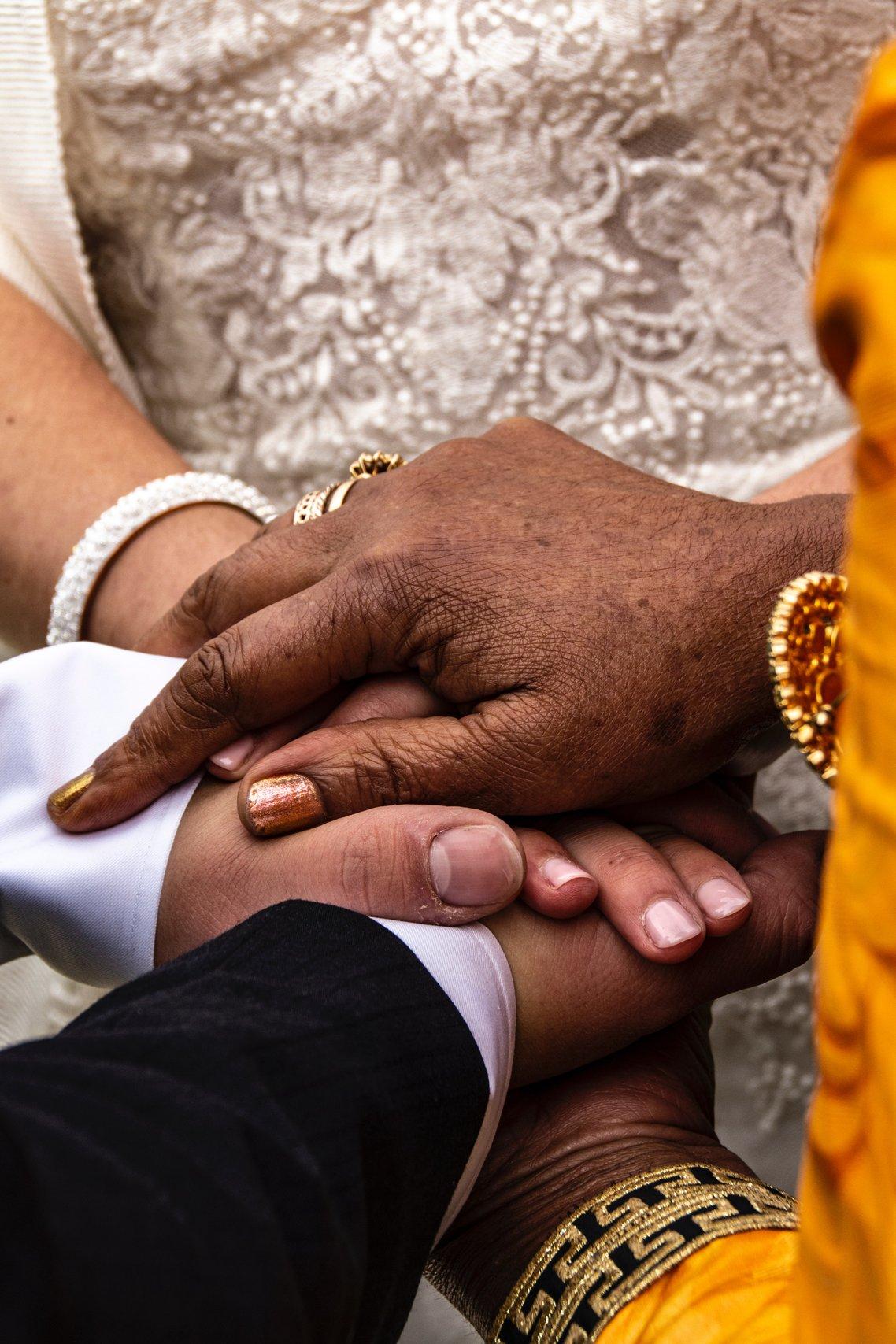
If you’re visiting a temple or sacred Buddhist space at any time before, during or after the wedding ceremony, Pin-Anong has some pointers. “Modest dress is required – you need to cover your shoulders, arms and legs”. This goes for any meetings with Buddhist monks especially and you’ll need to remove your shoes if you’re entering a Buddhist temple or pavilion, so choose footwear that you can easily slide on and off.
Otherwise, vibrant colour is always welcome and as with many Western weddings, white and black are to be avoided. Go to town on gold jewellery and dress for the location and according to any dress codes stipulated by the couple. You could wear a lightweight maxi dress and sandals to a beach wedding, an Indian or Sri Lankan wedding might call for a saree or another style of Indian wedding outfit or you might wear a sleek jumpsuit to a glamorous city hotel wedding. Go with the flow and if in doubt, look to the rainbow.
READ MORE: The Best Wedding Guest Jumpsuits
What Food is Served at a Buddhist Wedding?
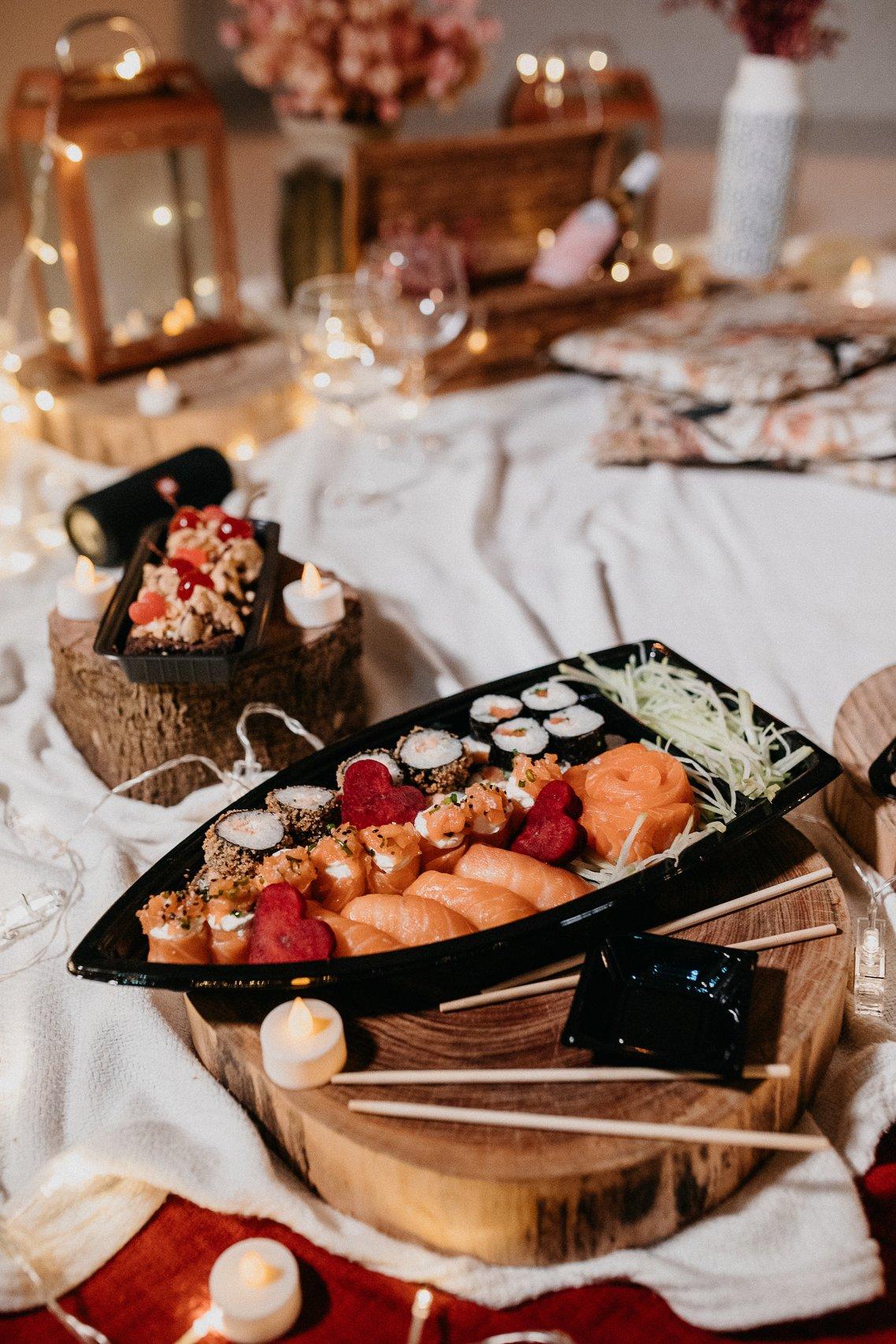
You probably know what’s coming – it depends. Wherever a Buddhist wedding is held, however, expect a feast. A Chinese, Thai, Japanese, Malaysian, Indian or Sri Lankan Buddhist wedding is likely to be a multi-course extravaganza featuring local specialities and delicacies and plenty of traditional sweets for afters. Many couples also choose a Western style wedding cake.
READ MORE: 41 Simple Wedding Cakes to Suit All Celebrations
Some Buddhist weddings in Southeast Asia, Sri Lanka and India in particular may have an entirely or predominantly vegetarian wedding menu, and while drinking isn’t prohibited in Buddhism, some Buddhists choose not to consume alcohol to avoid clouding the mind or any behavioral regrets later down the line.
What Gift Should I Give at a Buddhist Wedding?
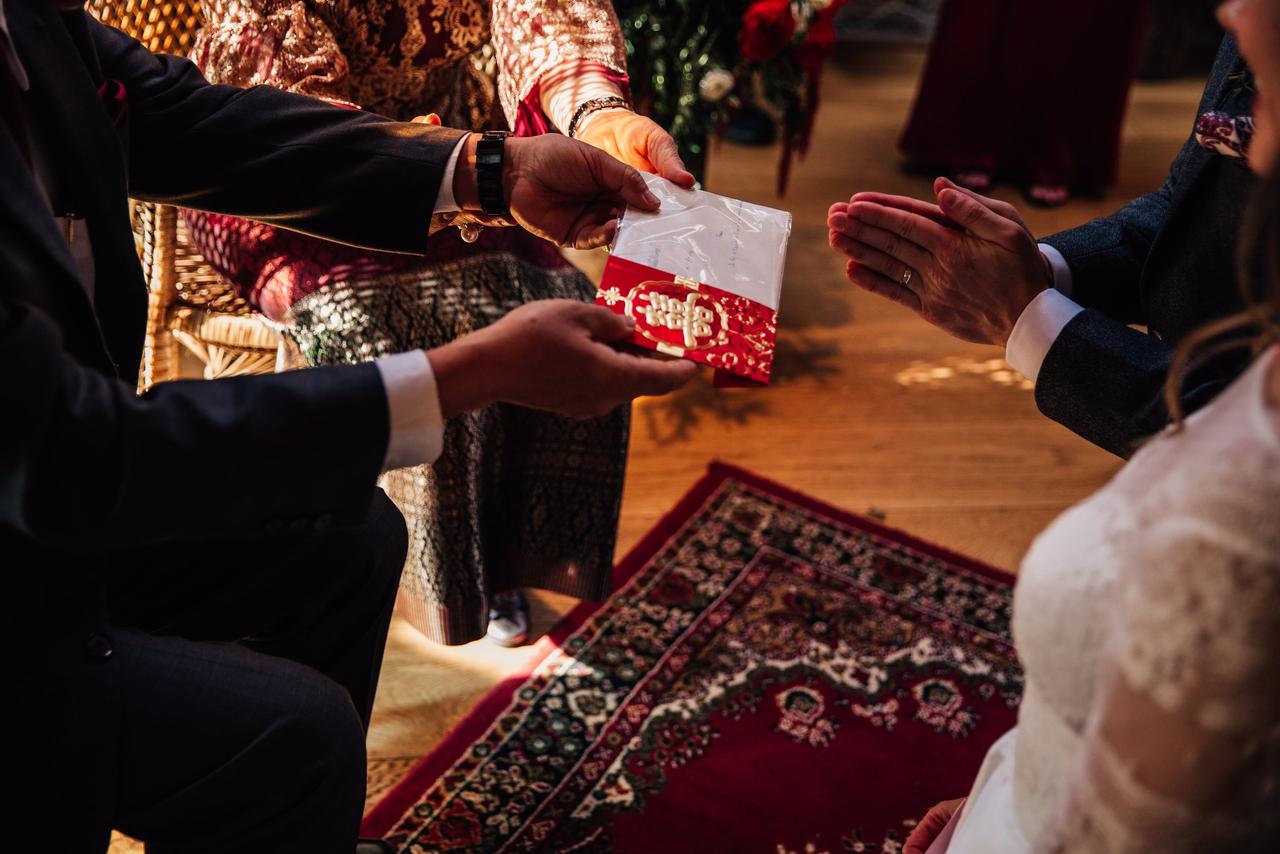
The most common gift to give to a couple at a Buddhist wedding is money, often in denominations that denote good luck in their culture. At our wedding (above), we were given red envelopes by our elders in accordance with Chinese customs, with the amount of money given often featuring the lucky number ‘8’ and ending in ‘1’, a number that signifies new beginnings.
108 is a particularly lucky number combination for Buddhists because it represents the temptations to be overcome in order to reach nirvana, and ‘7’ is considered auspicious too as it represents the number of steps that Buddha took after his birth. If you’re giving money as a gift at a Chinese Buddhist wedding, avoid the number ‘4’ as it has connotations with death.
Is There Anything that a Guest Shouldn’t Do at a Buddhist Wedding?
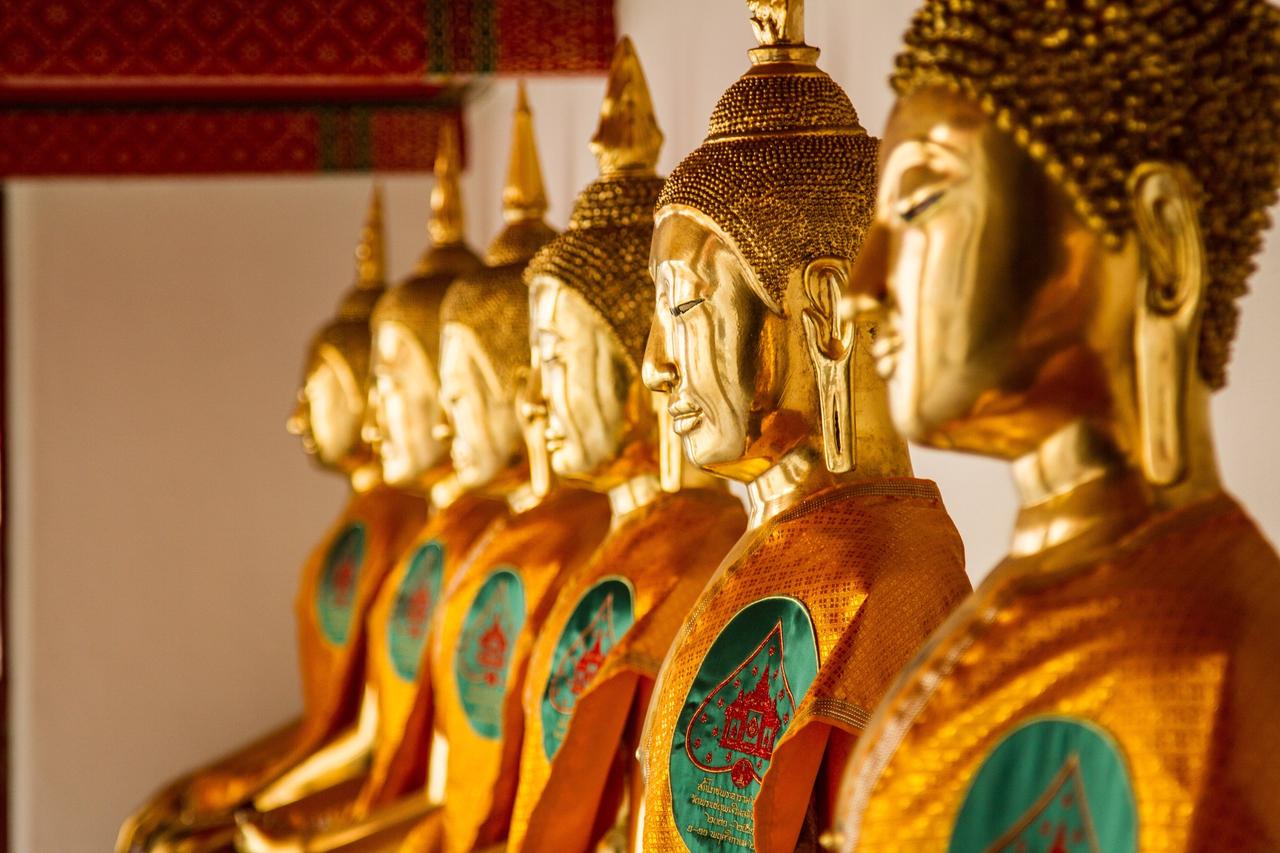
In addition to respecting dress codes in temples, at shrines and at other sacred places, never point your feet towards a statue of Buddha in Thailand or at a Thai celebration – it’s considered disrespectful.
Likewise, while there are no definitive rules at Buddhist weddings (dance your heart out) it’s a good idea not to get too drunk – Buddhists believe in the concept of ‘The Middle Path’ and intoxication goes against The Five Precepts that Buddhists adhere to. Then again, it’s pretty good manners not to overdo it at any wedding, so you’re likely fine there.
Curious about more global wedding traditions? These 55 amazing wedding traditions from around the world are sure to expand your horizons.

